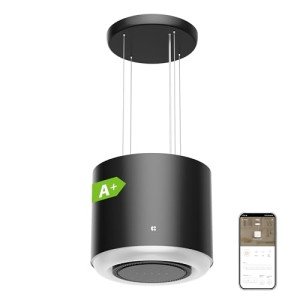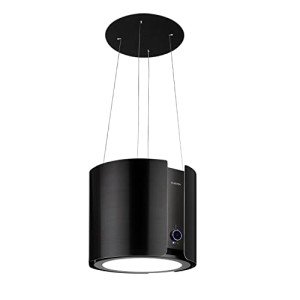Alejandrina Mcclellan
Blog entry by Alejandrina Mcclellan
Island Extractors: A Comprehensive Guide to a Unique Industry
In the world of extraction markets, couple of sectors capture the creativity as vividly as that of island extractors. These specialized entities focus on the extraction of valuable resources, both eco-friendly and non-renewable, from island ecosystems. This post looks into the complex world of island extractors, discussing their operations, ecological impacts, and the future of this niche industry.
Understanding Island Extraction
Island extractors are companies or individuals that engage in the extraction of natural resources found on islands. This extraction can consist of a variety of products, such as minerals, fossil fuels, and Range Hoods For islands even marine resources. Provided the unique ecosystems found on islands, the extraction procedure can provide both chances and fundamental obstacles.
Classifications of Island Extraction
kitchen island extractor extraction can normally be classified into several classifications:
| Category | Description | Examples |
|---|---|---|
| Mineral Extraction | The removal of minerals from the earth | Kaolin, Bauxite, Iron Ore |
| Nonrenewable Fuel Source Extraction | Extraction of fuels formed from organic matter over millennia | Oil, Natural Gas |
| Marine Resource Extraction | Harvesting resources from oceanic environments | Fish, Seaweed, Shellfish |
| Eco-friendly Resource Extraction | Extraction of sustainable resources | Timber, Freshwater |
The Process of Island Extraction
The extraction process itself can vary considerably based on the resource in concern. The procedures cooker hood for island drawing out oil diametrically vary from those Range Hoods For Islands (Italianculture.Net) gathering seafood.
Steps in the Extraction Process
- Expedition: This phase includes geological studies and preliminary research studies to examine the potential of the resource.
- Regulations Compliance: Compliance with regional and worldwide ecological laws is crucial to ensure sustainable practices.
- Extraction: This consists of drilling for oil or mining for minerals, and can cause considerable disruption to local environments if not managed properly.
- Transport: Extracted resources generally need transport back to the mainland or other markets, typically including the usage of ships and barges.
- Post-Extraction Restoration: Efforts to bring back the environment post-extraction are important to alleviate long-lasting impacts.
Ecological Impact of Island Extraction
Given the vulnerable nature of island range hood environments, the ecological impact of extraction activities can be significant.
Secret Environmental Concerns
- Environment Destruction: The physical elimination of landscapes can ravage regional plants and fauna.
- Contamination: Resource extraction can present pollutants, resulting in ocean acidification, water contamination, and air quality degradation.
- Coastal Erosion: Activities can intensify seaside erosion, changing the natural landscape and affecting regional communities.
- Biodiversity Loss: Extractors frequently interrupt local environments, positioning native types at risk.
Mitigation Measures
To counteract these impacts, island extractors are increasingly adopting sustainable practices that include:
- Implementing more stringent ecological regulations
- Utilizing technology for more secure extraction procedures
- Carrying out thorough ecological effect evaluations (EIA)
- Engaging with regional communities throughout planning and operation phases
The Future of Island Extraction
As global demand continues to rise for natural resources, the future of island cooker hoods 60cm extractors appears promising yet complex. Several factors will form the trajectory of this market in coming years:

- Technological Advancements: Innovations in extraction technology might lead to more efficient and less environmentally disruptive methods.
- Regulative Changes: As climate change becomes an ever-pressing concern, stricter guidelines may redefine extraction practices, prioritizing sustainability.
- Pressure from Environmental Groups: Increased advocacy for the protection of biodiversity and environments can affect functional procedures.
- Shift towards Renewable Resources: A growing focus on renewable resource solutions may alter the focus from non-renewable extraction to sustainable practices.
Regularly Asked Questions
What resources are commonly drawn out from islands?
Common resources extracted from islands include minerals, fossil fuels, timber, freshwater, and marine resources such as fish and seaweed.
How do island extractors ensure sustainability?
Island extractors can ensure sustainability by sticking to environmental regulations, including innovation that decreases impact, and restoring environments post-extraction.

What are the major difficulties dealt with by island extractors?
Difficulties consist of compliance with policies, handling ecological effects, logistical concerns connected to transportation, and engaging with local communities affected by extraction.
Exist any notable island extraction jobs?
Yes, different jobs exist internationally, including mineral mining in the Caribbean, oil drilling in the North Sea, and sustainable fish farming efforts in Southeast Asia.
The world of island extractors is a complicated interaction between economic opportunity and environmental obligation. As this industry evolves, the difficulty will be to stabilize resource extraction with the requirement to protect delicate island communities. By embracing sustainable practices and engaging with regional neighborhoods, island extractors can forge a path that appreciates both nature and market, ensuring that these distinct environments are maintained for generations to come.